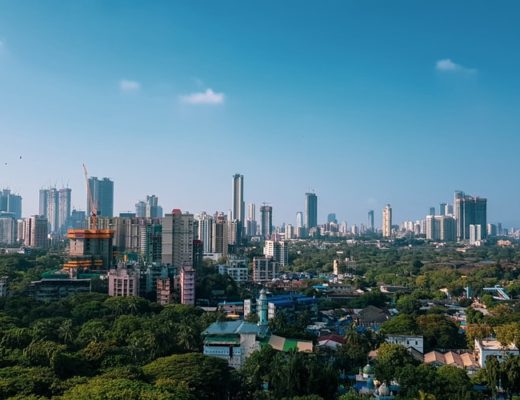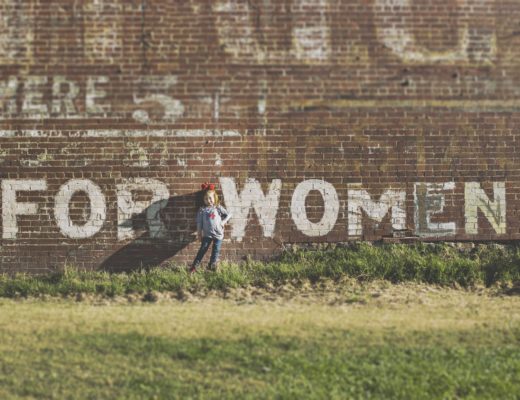Though we may feel it is much easier to love than to hate, hate is the preferred choice for a vast number of people. We spend a lot of energy and time to spread hate and a lot of people are finding it difficult to live with people who are unlike them. We are erecting more walls and trying to confine ourselves to our narrow spaces. On the other hand, cultivating empathy towards others was never more important and urgent. Perhaps these could be some valuable thoughts for 2020.
The hardwired brain
Before we begin to discuss the culture of hate and cultivation of empathy, it will be worthwhile to think about the orientation of our brains towards others. Are we naturally empathetic to everyone equally? Do we need to cultivate empathy deliberately? Are our brains hardwired to care for only a select group? There are a lot of studies which tell that our empathy can be selective. It is in human nature to form in-groups and outgroups. We care more about people who are like us and share some features with us. It can be religion, language, nationality and so on. In an interesting essay on the subject by two neuroscientists namely David Eagleman and Don Vaughn, we read about experiments done to explore this essential link. In 1954, a team of psychologists brought together a group of pre-teen boys at a summer camp at Robbers Cave State Park in Oklahoma. They randomly divided the boys into two arbitrary groups called the Rattlers and the Eagles. As the researchers watched, a prejudice formed between the groups, initially manifesting itself as light taunting and name-calling. But the partisanship quickly grew more serious. The Eagles torched the Rattlers’ flag, and the next day, the Rattlers plundered the Eagles’ cabin, flipped over beds and stole clothing. Soon, the groups became so hostile that the researchers had to physically separate them. When asked to describe the attributes of the groups, the boys offered flattering terms for their own group and insults for the other. The conclusion: antagonism can emerge from arbitrary divisions.
These studies were replicated in different environments and with different kind of samples. It was also found that sometimes even though participants were assigned random groups, their brains displayed the same patterns of in-group allegiance and outgroup disregard. In other words, we can see that even arbitrary labels rapidly create bias. Based on these studies, perhaps we can say that the affinity to one’s own group is a universal phenomenon and may have evolutionary origins. However, the progress of humanity depends a lot on overcoming these biological biases and reaching out to all despite the differences. It is in this background we need to see the increasing culture of hate and the urgency to understand its disastrous consequences for humanity.
The culture of hate
While bias towards one’s own group is one thing, much more dangerous is the growing phenomenon of hatred towards others. The difficulty to accept differences among human beings is being manifested as explicit hatred. Ironically, the technologies which were expected to create greater harmony among people is being increasingly misused to cultivate hate. As we all know, social media provided a very easy opportunity for people to come together on the basis of commonalities and it indeed gave a fillip to human bonding. All kinds of identities found its expression in the space provided by social media. Everyone search for people like them and those who share their opinions, likes and dislikes. Once it grows to a critical level, people find it very difficult to accept a different opinion leave alone a different person. In this process, such groups become an echo chamber of similar views and biases where nothing is challenged or questioned. When extreme political and religious views enter such groups, it begins to breed much hatred towards the outsider. It was as if people were waiting for the pleasure of attacking a common enemy collectively. In short, the greater availability of social media connectivity came with a price. On the one hand, it connected people beyond borders and in that process, it also gave birth to the production of deep biases and hatred towards others. No discussion on the culture of hate on a large scale can be done without addressing this peculiar social media phenomenon.
As we discuss the roots of hatred, we must also be wary of the lethal potential of visuals in hate propaganda. The power of visuals is much more than that of words. Imagine getting bombarded by very explicit hate visuals on a daily basis. Imagine seeing the visual of a vandalised place of worship and the mood it generates. When a criminal act assumes a religious colour the entire debate changes. Also, remember that no incident is local now. The sad thing is that a lot of hate propaganda has its roots in half-truths and highly polarised views. We must never underestimate the catastrophic consequences of hatred when practised by a crowd and as Sigmund Freud underlines in Group Psychology, crowds make a ‘barbarian’ of the ‘cultivated individual’. The inhibitions enforced by social life will be so readily overwhelmed by all that is ‘cruel, brutal and destructive’ when hate bond a crowd together.
Give empathy a chance
Empathy has a huge role in building a just and harmonious world for us. We can love our uniqueness and feel proud of it. But only when we accept differences and accept the equality of the human race, we make civilisations work. Confirmation of our biases and opinion give us pleasure but only when someone challenge and question us we grow in our understanding and reach closer to reality. Though hate may give a high for some people for some time and may win elections for a few others its track record in ensuring lasting peace and prosperity is indeed poor. Cooperation between groups which may have nothing in common is essential for the survival of the species. Renowned Biologist E.O. Wilson makes an interesting observation here. According to him, within groups, selfish individuals may beat altruistic individuals but groups of altruists beat groups of selfish individuals. Though humanity as a whole is a beneficiary of the liberal world order of the last few decades where global cooperation was flourishing, we are now witnessing increasing hostility between nation-states and communities. Even within nations, trust between various groups is crucial. Though a liberal world order has its own flaws, it may be the best system available to ensure an empathetic and equitable world. As historian, Yuval Nova Harari reminds us, if extreme nationalism can force us to be loyal to millions of strangers as our countrymen it should not be difficult to extend the same loyalty to the entire humanity also. Considering our propensity to form in-groups, we have to deliberately cultivate empathy. There are many steps suggested for that. First and foremost, we must be aware of our biases to outgrow them. We have to work more with art and literature to know about people who are not like us and to develop empathy towards them.
The goods and comforts we enjoy are the end products of the hard work of millions of strangers whom we don’t and may never know. What helped human beings to advance as a species was its ability to cooperate and as new dangers confront us, humanity is once again called upon to develop empathy towards each other. Of course, we have been talking about love and empathy for thousands of years. But we need to speak about them again and again as there is no other alternative to create a better world for our children. Together, let’s dream a world where empathy and love triumph over our narrow divisions and deeply held prejudices. A world where none is alone and everyone matters.
HAPPY 2020 TO ALL MY READERS







2 Comments
Fr. Jijo Kandamkulathy
January 7, 2020 at 5:45 amWell written…..
Thanks for quoting David Eagleman…. One Neuroscientist to count on in the next decade.
Boby George
January 8, 2020 at 12:13 pmThanks Father. It was very striking to know about such experiments conducted and why it is very important that we deliberately cultivate empathy to make this world a better place to live.